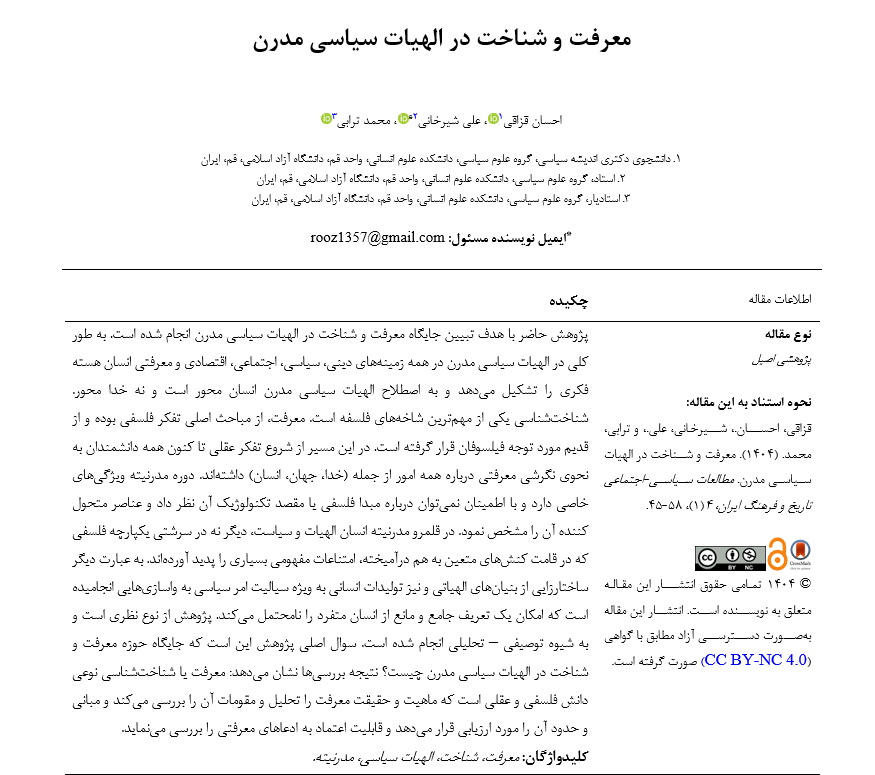Knowledge and Epistemology in Modern Political Theology
Keywords:
knowledge, epistemology, political theology, modernityAbstract
The present study aims to explain the position of knowledge and epistemology in modern political theology. Generally, in modern political theology, across all religious, political, social, economic, and epistemological domains, the human being constitutes the core of thought. In other words, modern political theology is anthropocentric rather than theocentric. Epistemology is one of the most important branches of philosophy. Knowledge has always been a central topic in philosophical thought and has long attracted the attention of philosophers. Throughout the development of rational thinking to the present day, all scholars have, in some way, held an epistemological perspective on various matters, including God, the world, and humanity. The modern era has its own distinct characteristics, and it is not possible to confidently determine its philosophical origin or technological destiny, nor clearly identify its transformative elements. Within the domain of modernity, theology and politics are no longer united under a coherent philosophical nature; rather, they are intertwined as determinate actions, generating numerous conceptual impossibilities. In other words, the structuring of theological foundations and human productions—especially the fluidity of the political—has led to deconstructions that render a comprehensive and exclusive definition of the individual human being unlikely. This study is theoretical in nature and has been conducted using a descriptive-analytical method. The main research question is: What is the position of knowledge and epistemology in modern political theology? The findings indicate that knowledge, or epistemology, is a form of philosophical and rational inquiry that analyzes the nature and reality of knowledge, examines its constituents, evaluates its foundations and limitations, and assesses the reliability of epistemic claims.
Downloads
References
Copleston, F. (2005). A History of Philosophy. Scientific and Cultural Publishing, Tehran.
Fakouhi, N. (2010). Anthropology. Ney Publishing.
Kant, I. (2022). Critique of Pure Reason. Qoqnos Publishing.
Shojaei, M. S. (2007). A look at knowledge from the perspectives of philosophy, psychology, and Islam. Knowledge Journal(119).
Weber, M. (2021). The Protestant Ethic and the Spirit of Capitalism. Scientific and Cultural Publishing. https://doi.org/https://doi.org/10.2307/j.ctv1f886rp.5








